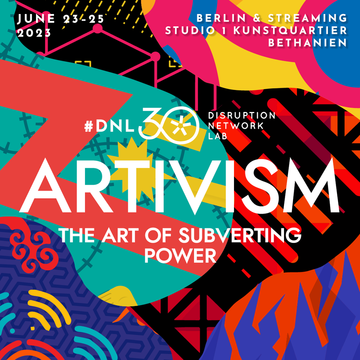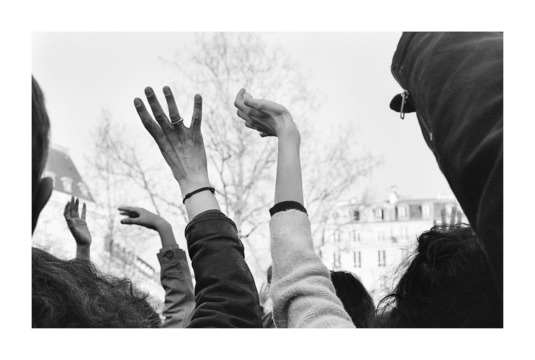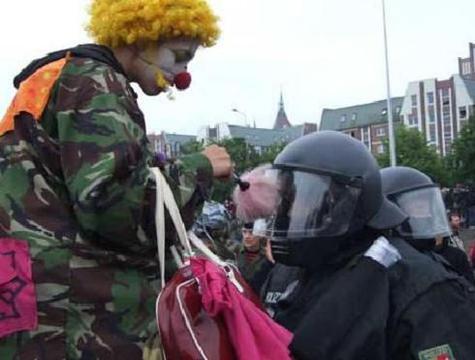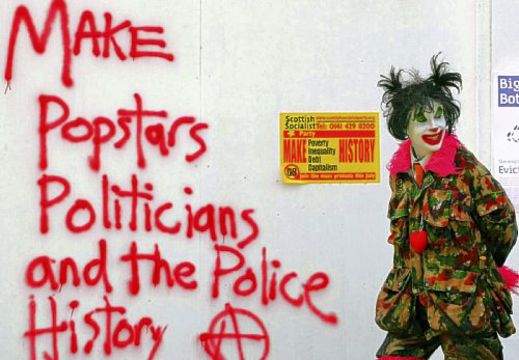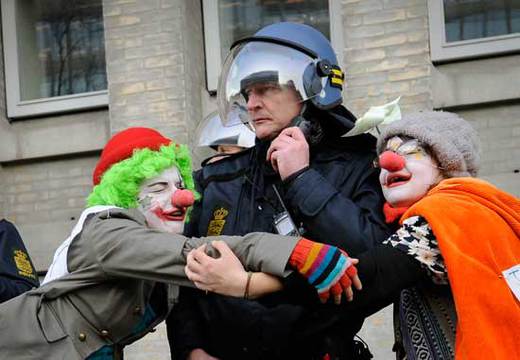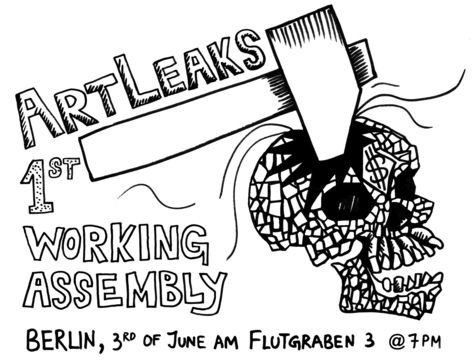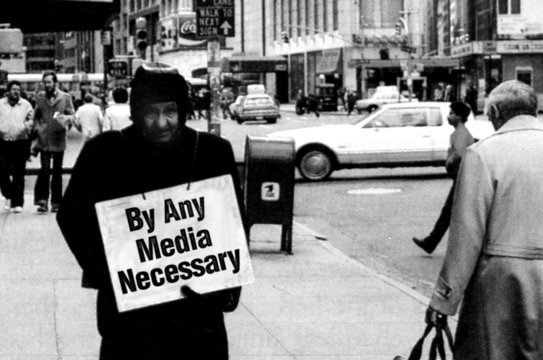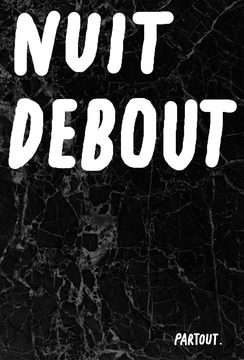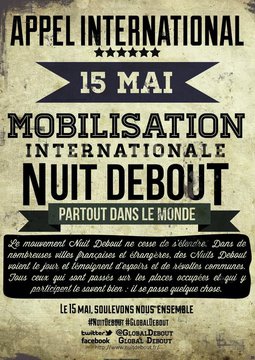Search results for 'art of campaigning'
Nuit Debout
Nuit Debout
Art After Activism?
This debate will address some of the doubts that hard core activists have about the usefulness of art in a political context.
May Day: Art Workers' Pride Visual Archive
April 28, 2014:
This Thursday is May Day, international workers' day.
Across
the globe workers will celebrate May Day in various ways, organizing
street demonstrations and protest marches in their communities,
demanding justice and freedom for all oppressed people.
With this occasion, ArtLeaks will inaugurate a visual archive dedicated
to art workers' pride, which will continue to gather material throughout
the year.
#GlobalDebout
#GlobalDebout
The Art of Campaigning
The idea for the Art of Campaigning topic originates from the works of
the McLibel group [www.mcspotlight.org]. Their type of net.campaign
questions previous forms of activism, which was focused on the mass
media and their ability to influence public opinion, by staging direct
action (targeted at known media makers). Big NGO's such as Greenpeace
have built up experiences with this model for decades. The scenarios
they use have not changed much since the seventies. There is the usual
PR material: official reports, books, folders, flyers, magazine and
original video footage, shot on location. Campaigns are being planned
long in advance. The way of working does not differ much from a
campaign to launch a new product. Professionalism has taken over the
task of volunteers. Their role is being reduced to that of a local
support group, doing the actual grass roots work with the population.
ARTIVISM: The Art of Subverting Power - June 23-25, 2023, Berlin
THE 30TH CONFERENCE OF THE DISRUPTION NETWORK LAB
KUNSTQUARTIER BETHANIEN - BERLIN & STREAMING
[ Archived streaming videos at: https://www.disruptionlab.org/artivism#video ]
How can art and activism be combined to tackle burning social issues, surveillance, unethical corporations and corrupt governments?
A programme of panels, workshops, and artistic productions curated by Tatiana Bazzichelli.
The Concept of Tactical Media
Tactical Media emerged when the modest goals of media artists and media activists were transformed into a movement that challenged everyone to produce their own media in support of their own political struggles. This "new media" activism was based on the insight that the long-held distinction between the 'street' (reality) and the 'media' (representation) could no longer be upheld. On the contrary, the media had come to infuse all of society... Read More
Next 5 Minutes Core Themes
The third edition of the Next 5 Minutes revolved around four core themes:
- The Art of Campaiging
- The Post-Governmental Organisation (PGO)
- How Low Can You Go? The Technical and the Tactical
- Tactical Education
Stop The Jabiluka Uranium Mine in Kakadu
Does the art of campaigning involve commodifying a struggle and presenting it in a package to the people through the media? What impact does the media really have? How useful is the net as an alternative medium? Does it only reach the alternative people - those who already know about the issues or is it capable of engaging with the mainstream public. Does genuine public opinion have any real impact in the current political and corporate climate?
ReadThe Next 5 Minutes
tactical media event
Amsterdam & Rotterdam, The Netherlands, 12-14 March, 1999
www.n5m.org
(Source: Updated announcement Feb 11, 1999)

